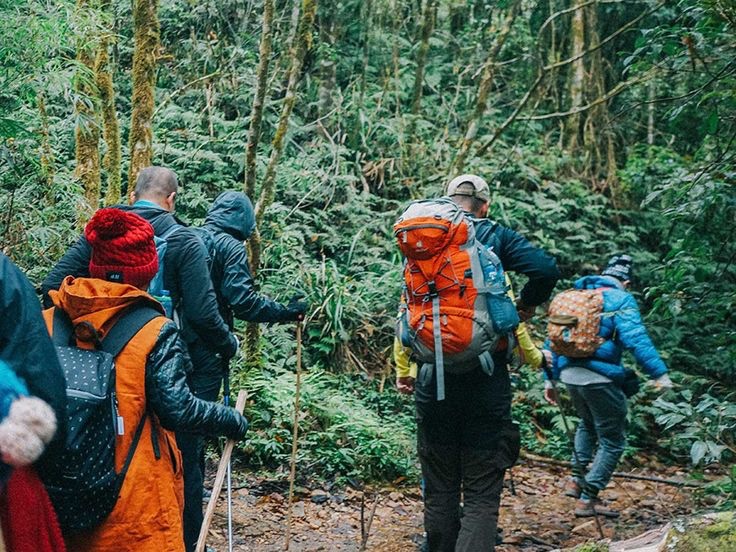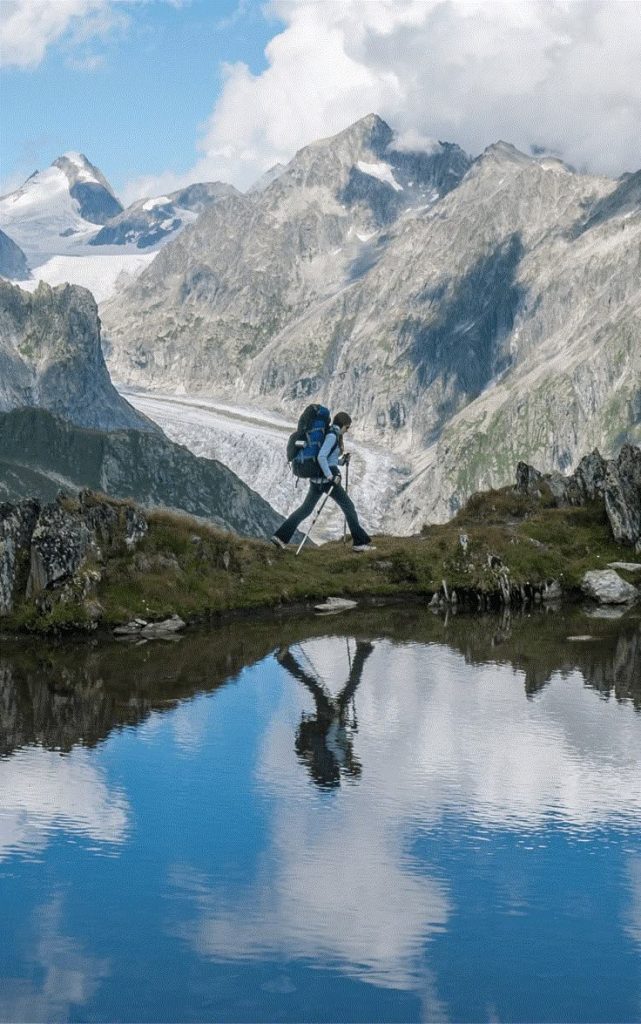As technology seeps into every crevice of life, young people are increasingly surrounded by the virtual world and endless blue screens. Yet, amid this digital storm, a portion of the youth chooses to disconnect from Wi-Fi, venture into forests, climb mountains, and immerse themselves in untouched nature. For them, trekking is not just a trip — it is a journey to reconnect with their true selves.
When the virtual world becomes too crowded
Every day, we swipe through hundreds of stories, endlessly scroll through news feeds, and react to a flood of notifications from emails, social media, and messages. It feels as though the digital world never sleeps, and we have forgotten how to truly “disconnect”.

For many young people, social media is not just a place to catch up — it has become a stage where they must maintain a constant presence to avoid being forgotten. The pressure to be “always online” and “always fresh” gradually drains life of its depth. This is also why trekking — the activity of taking long walks through natural trails — has become one of the “escapes” that many young people choose to break free from the whirlwind of technology.

Up the mountains to find their true selves
Trekking is not a light experience. It demands physical strength, endurance, and a spirit willing to embrace solitude. Yet, within that harshness, many young people rediscover a sense of peace that the virtual world can never offer.
At thousands of meters above sea level, among rocky cliffs, pine forests, or silver clouds stretching across their line of sight, all the noise of digital life seems to fade away. There is no Wi-Fi, no likes or comments — only the sound of footsteps, the steady heartbeat, and the rhythmic breath blending with nature. In that space, each person is compelled to confront themselves and the thoughts that are usually buried beneath the constant flood of information.

Trekking as a mobile form of meditation
Unlike leisure travel, trekking is a long journey that demands personal effort and the ability to embrace uncertainty. Yet, this very challenge transforms each trail into a healing experience. When one’s feet must cross rugged slopes and dark forests, the mind is forced to be fully present in the moment.

Trekking, in this sense, is much like a form of “moving meditation” — where one does not sit still with closed eyes, yet still finds inner stillness. There is no need for temple bells or incense; a breeze sweeping through a valley or the first light breaking over a mountaintop is enough to soothe the soul. Many have rediscovered a slower rhythm of life through such journeys — where time is no longer sliced into deadlines and notifications, but measured by sunrises, forest rains, or the flicker of campfires glowing in the night.
When the young community regains their true values
Beyond being a personal experience, trekking is gradually becoming a community movement. Groups of young nature enthusiasts are exploring trails across Vietnam, from Ta Nang – Phan Dung, Pha Luong, and Fansipan to Bidoup, or venturing through the untouched lands of the Northwest.
What’s notable is that within trekking communities, the bond is not built by “showing off” experiences online, but through real moments — helping each other up steep slopes, pitching tents together, or sharing the last drops of water when supplies run low. In a virtual world full of simulations, true values — like kindness, perseverance, and teamwork — have become more precious than ever. Instead of seeking meaning through likes, these young people are creating meaning with every step they take, with every moment they push beyond their own limits.

In a world where people are becoming increasingly “digitized”, trekking serves as a reminder of true presence — both in body and soul. It is a vivid journey where young people rediscover themselves beneath layers of technology. Amid the silent mountains and forests, where there is no network signal and only the whisper of the wind remains, they learn to listen to their inner voice — something that sometimes a whole lifetime in the digital world cannot uncover.
Taylor | Cameron Truong





